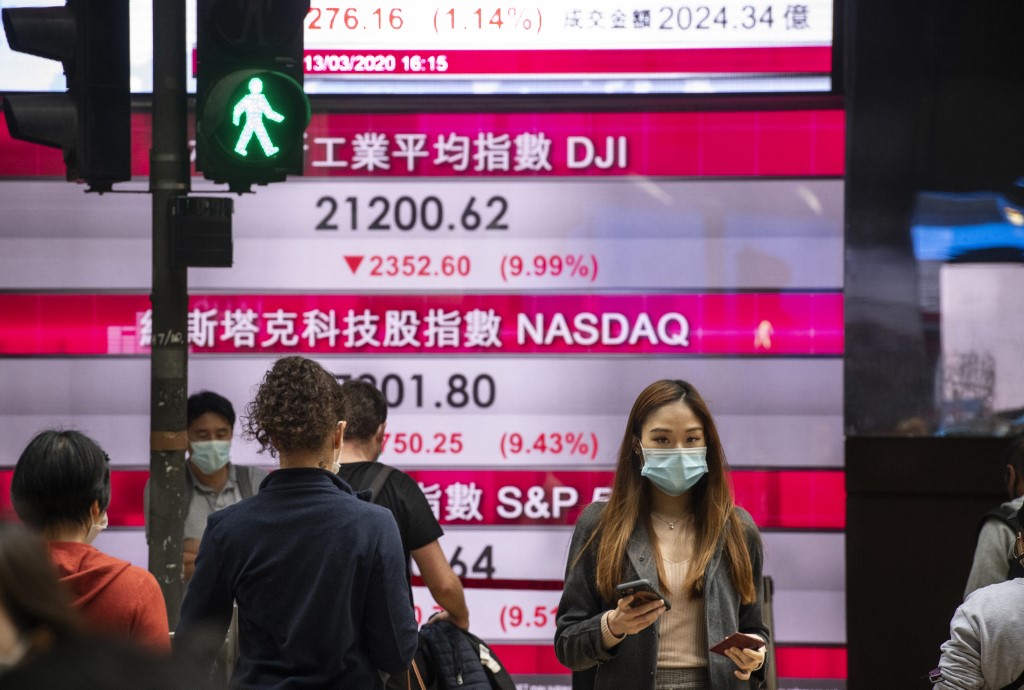Asian stock markets were in retreat on Friday as edgy investors waited for a key US inflation report due later in the day.
Hong Kong’s Hang Seng Index closed more than 1% down, as did Tokyo’s benchmark Nikkei 225 index and Shanghai also slipped.
That followed another day of reversals on Thursday with European and US stock markets dropping as traders tracked developments surrounding the Omicron coronavirus variant and fallout from the Chinese property crisis – snapping a three-day rally.
Nervous traders were waiting on the latest US consumer price data, which is expected to show inflation climbing higher last month. And next week’s Federal Reserve meeting might offer clues as to the pace of tapering and interest rate increases.
Also on AF: China’s SenseTime Reassessing Its $767m Hong Kong IPO
“It goes without saying that today’s inflation report in the US is the main event,” said Matt Simpson, senior market analyst at City Index. “It hit a 30-year high in October and expectations are for those numbers to be inflated further.
“We can see today’s report as a proxy for next week’s Federal Reserve meeting, because the hotter inflation is the more pressure it piles on the Fed to increase their pace of tapering.”
The Hang Seng Index was down 1.07%, or 259.14 points, to 23,995.72. The Shanghai Composite Index was down 0.18%, or 6.69 points, to 3,666.35, while the Shenzhen Composite Index on China’s second exchange gained slightly, by 0.14%, or 3.49 points, to 2,546.65.
The benchmark Nikkei 225 index fell 1.00% or 287.70 points to 28,437.77, for a weekly gain of 1.46%. The broader Topix index slipped 0.77% or 15.31 points to 1,975.48 for a weekly gain of 0.90%.
Elsewhere in Asia Friday, Seoul, Taipei and Singapore were down slightly, while Wellington was marginally up. Stocks retreated at the open in Europe.
Asian Stock Markets’ China Property Fears
Investors were also concerned about the debt crisis in China’s property sector, after Fitch Ratings’ Thursday announcement that two major Chinese property firms defaulted on $1.6 billion worth of bonds to overseas creditors.
The agency confirmed Evergrande defaulted for the first time on more than $1.2 billion worth of bond debt, as it downgraded the firm’s status to a restricted default rating.
“A massive debt restructuring exercise now beckons for China’s more highly leveraged property developers, raising fears that China growth will take a dip next year,” said Jeffrey Halley, senior market analyst for Asia Pacific with OANDA. “That will be enough to keep Asian currencies and regional stock markets nervous.”
And coronavirus fears had not completely fallen off investors’ list of concerns, said Michael Hewson, chief market analyst at CMC Markets UK.
“The risk of tighter restrictions due to Omicron is also tempering risk appetite, after the early gains of earlier in the week, with US markets also closing lower, despite weekly jobless claims falling to another 52 year low of 184k,” he said.
Key figures around 0820 GMT
Tokyo > Nikkei 225: DOWN 1% at 28,437.77 (close)
Hong Kong > Hang Seng Index: DOWN 1.07% at 23,995.72 (close)
Shanghai > Composite: DOWN 0.18% at 3,666.35 (close)
New York > Dow: FLAT at 35,754.69 (close)
London > FTSE 100: DOWN 0.3% at 7,301.77
- AFP with additional editing by Sean O’Meara
Read more:
SoftBank Offloads $550m in WeWork Debt, Pushing Up Yield
China Evergrande and Kaisa Declared in Default by Fitch
























